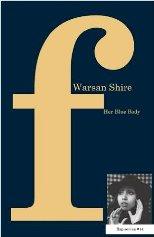
Here, Berry’s writing mimics time’s uneven flow: “The past is our country: pawned, / broke down and unforgiveable, governed / by people we cannot trust, and we live in it.” Ellipses abound, revealing an omission of thought or feeling, thereby heightening what does appear on the page: “When someone leaves you, / they flow out of you like milk, / and if you allow it, you can feed people …”. While related themes emerge, to read her latest work is to be immersed in a shimmering world of dream logic, where lyric fragments cohere and disassemble like the passage of light over the course of a single day. Unexhausted Time by Emily Berry (Faber, £10.99) Berry’s third collection marks a departure from its predecessor Stranger, Baby, a polyphonic meditation on loss, survival and grief. Much of Vinegar Hill offers the pleasure of a slow, meandering walk, as if the reader and poet have companionably “decid to take / The slow way home”. It is not easy / For anyone being in the world”.
HOME WARSAN SHIRE PDF HOW TO
It does seem tempting, even still, / To imagine the line of waiters as a metaphor … / For soft power how to take a firm stance / On foreigners.” There is a lingering melancholy in Tóibín’s work, particularly in his sparse reflections on ageing and death: “In the book that points the way, / I found words and signs that served only / To mystify me further. Instead, we witnessed what it is like / To wear your welcome out. In a candid poem about his visit to the White House on Saint Patrick’s Day in 2010, he writes: “We had expected to learn something in that house about power / And politics. A renowned novelist, Tóibín brings his keen eye for vivid narrative detail. Vinegar Hill by Colm Tóibín (Carcanet, £12.99) Tóibín’s debut collection consists of lyric and narrative poems that traverse multiple physical locales and emotional landscapes, from Enniscorthy to Budapest to Los Angeles.

In “Backwards”, a specular poem in which the latter half mirrors the first, Shire invokes the creative powers of the writer to transform one’s past: “Give them stumps for hands if even once they touched us without consent, / I can write the poem and make it disappear.” Vital, moving and courageous, this is a debut not to be missed.

The boy you went to school with, who kissed you dizzy behind the / old tin factory, is holding a gun bigger than his body.” The need to reclaim ownership over one’s body is another key theme, especially in the wake of sexual trauma. You only / run for the border when you see the whole city running as well. In her notable poem “Home”, Shire writes, “No one leaves home unless home is the mouth of a shark. Intergenerational trauma arising from the legacy of war, colonialism and the ongoing refugee crisis are addressed with a painful and urgent clarity. Bless the Daughter Raised by a Voice in Her Head by Warsan Shire (Chatto, £12.99) Shire’s first full-length collection builds on her much admired pamphlets Teaching My Mother How to Give Birth and Her Blue Body.


 0 kommentar(er)
0 kommentar(er)
